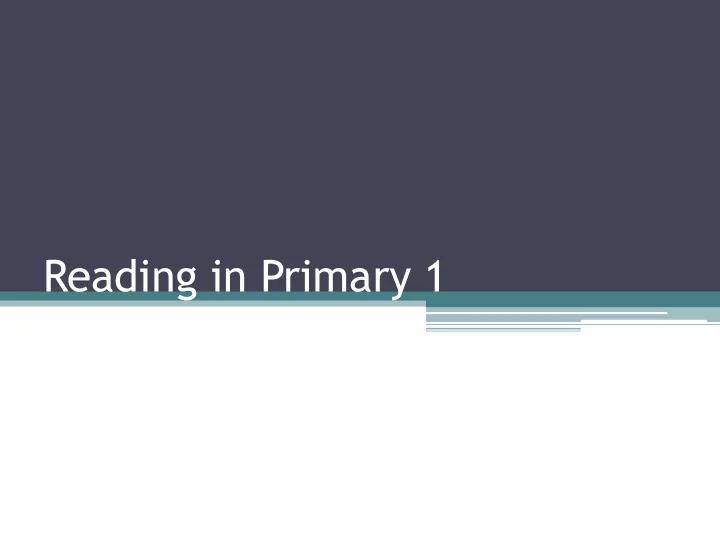

Reading in Primary 1
Reading • Reading is a jigsaw of skills • When all of the skills are learned, only then do we have a truly fluent reader
Phonics • One part of reading is phonics – the sounds each grapheme/letter represents • Children need to be able to ‘decode’ words in order to read them • We use a variety of tools to help our children learn phonics skills…
Phonics • Actions, stories and songs to help remember which sound is which • ‘Colourful Consonants’ and ‘Vowel House’ – introducing each sound with a colour to teach its articulation. Children think about how the sound is made in their mouth. • Finger Phoneme Technique - ‘ sounding out’ words to aid blending and segmenting.
Finger Phonemes
Colourful Consonants
Word building
Sight Vocabulary/Common Words Words than cannot be ‘sounded out’ and have to be memorised Teaching Techniques • look at the word and say it aloud • ‘take a picture of it’ in your head • close your eyes • try to write it (e.g.in the air) • check the sequence of letters
Comprehension • Comprehension is the reason for reading. If readers can read the words but do not understand or connect to what they are reading, they are not really reading. • Good readers have the skills to absorb what they read, analyse it, make sense of it, and make it their own.
Comprehension Skills Taught • Using picture/context clues • Finding evidence in the text to back up thinking • Making predictions and revising them • Linking events in the text to self/other texts • Beginning to think about the purpose of the text – who wrote it and why?
Comprehension Questioning • Answering to questions demonstrate understanding • Questioning can include basic recall of events and higher order questions using ‘how’ and ‘why’ to help pupils engage with texts at a deeper level • We encourage children to ask questions about the text to make sense of it at their own level
Three things to take away with you: • Use finger phonemes – for building words • ‘Take a picture’ – for memorising common words • Ask open questions when reading – Why? How? What if? Encourage your child to ask questions too
Recommend
More recommend